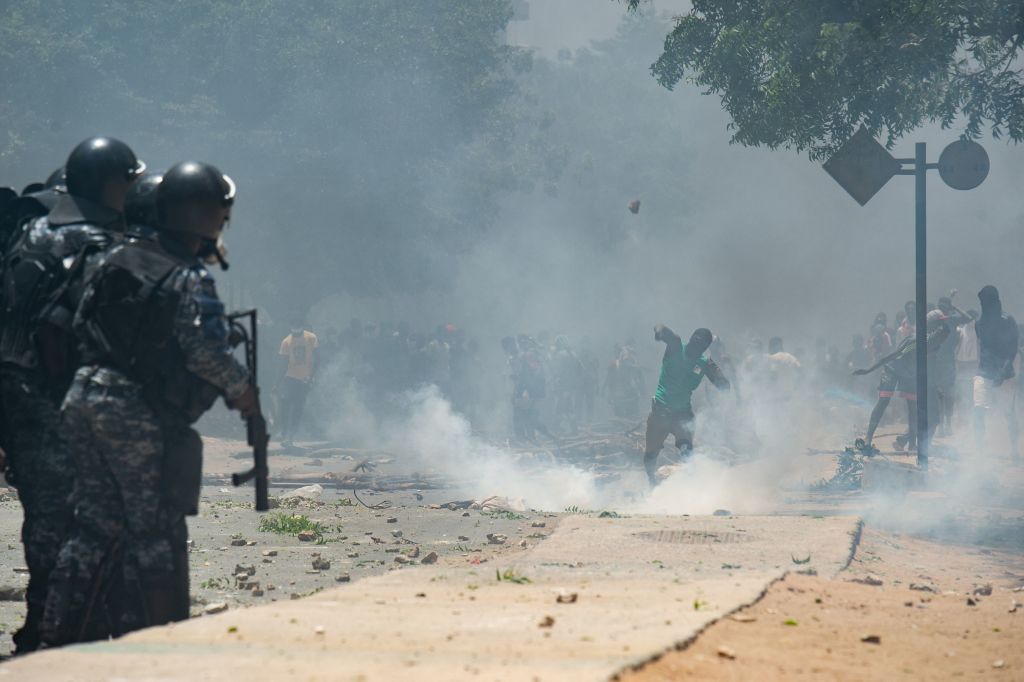ADF STAFF
Senegalese President Macky Sall’s announcement in July that he would not seek a third term in office was met with a mix of relief and pride in a country known for its democratic traditions.
“A time bomb was just deactivated,” prominent Senegalese human rights advocate Alioune Tine told The New York Times. “It’s a huge relief for Senegal and the African continent.”
Senegal, the only West African country that never has had a coup or a significant terrorist attack, long has been a pillar of regional stability. But cracks in the pillar have begun to show.
Tensions have risen steadily in recent years with protests over the high cost of living and accusations of systemic government corruption. Senegal has become a prime target for expansion by violent extremist organizations in the Sahel region.
The same conditions — unrest and dissatisfaction with the government — contributed to a rash of recent coups that have plagued the Sahel and West Africa.
“[Senegal] has always been seen as an ‘African exception,’ a ‘showcase of democracy,’ a united nation that can rely on a functioning state and institutions,” sociologist Aly Baba Faye told Focus on Africa magazine. “However, today it seems to be the subject of debate about a stability that risks collapsing.”
The COVID-19 pandemic intensified inflation, debt and unemployment. Russia’s invasion of Ukraine brought food shortages, rising gas and electricity costs, and further discontent with Sall and his government.
In 2022, Senegal’s poverty rate was 36.3%, according to the World Bank. The government sought to cap prices for some foods, school fees and rent, but critics were unmoved.
“Massive youth unemployment and exhaustion over Sall’s corruption scandals have tilted the scales towards hostility against the country’s political leadership,” journalist Elodie Toto wrote for Foreign Policy magazine.
“The anger is palpable. All it would take is a spark for this powder keg to ignite and provide an opportunity for terrorists.”
The Sahel accounts for 43% of the world’s terrorism deaths, with the number of victims increasing by more than 2,000% over the past 15 years, according to the 2023 Global Terrorism Index.
Senegal’s neighbor to the east, Mali, ranked fourth worldwide on the index’s list of most-affected countries. Burkina Faso was second.
Experts say the country’s complex challenges make it vulnerable to terrorist groups, which can capitalize on and amplify discontent by radicalizing disaffected youth.
“The mounting frustrations in Senegal, including economic disillusionment, police violence, and accusations of corruption, have served as conditions that terrorist groups have capitalized on throughout the region,” independent research nonprofit The Soufan Center wrote in a June brief.
“Al-Qaida-affiliated Jama’at Nusrat al-Islam wal Muslimin and Islamic State Greater Sahara have taken advantage of porous borders, corruption, weak rule of law, and other multifaceted regional challenges like environmental degradation, food insecurity, migration, and economic instability.”
Political tension and violence also are rising. There are fears that the government will disqualify opposition leader Ousmane Sonko, who led preelection polls for the 2024 presidential election before he was charged with fomenting insurrection on July 31.
A violent crackdown against Sonko supporters in June resulted in 23 deaths, hundreds of arrests, and destruction of public and private property, including banks, buses and trains.
The government also blocked social media and messaging apps, then shut down mobile internet nationwide, costing the economy dearly.
Faye believes these factors have combined to create the perfect storm of tensions in Senegal.
“It is crucial for the government and the political leadership to address these issues seriously and engage in meaningful dialogue with all stakeholders,” he said. “This includes implementing policies that address youth unemployment, promoting transparency and accountability in governance, and ensuring equal access to opportunities for all Senegalese citizens.
“Only through genuine efforts to address these structural challenges can Senegal regain its stability and live up to the ideals of its revered Senegalese model.”

